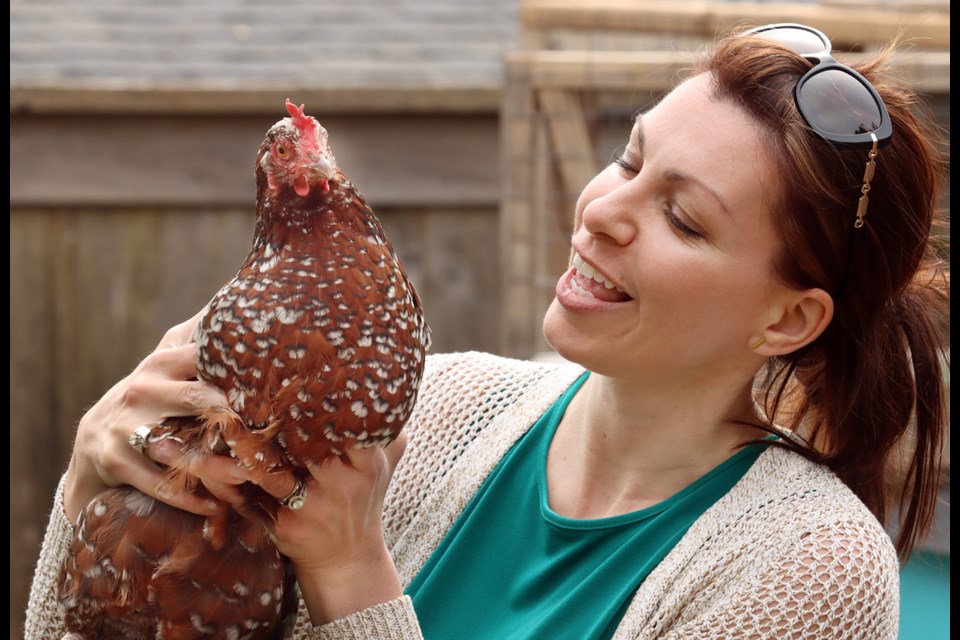Dana Dunne is hoping to teach her three sons about food security and creating sustainable agriculture by raising five chickens in the backyard of their Port Moody home.
Instead, they’re getting a lesson in civic bylaws and bureaucracy.
May 11, Dunne is scheduled to make a delegation to city council asking for an update to bylaws to allow backyard chickens. Currently, the city treats chicken or other livestock as pets; they’re allowed, as long as they’re kept “within a dwelling unit.”
She’s also started an online petition to “save the Dunne chickens” that’s collected more than 760 signatures.
Dunne said the family has had the chickens — each named after a monarch, like Elizabeth and Marie Antoinette — for about a year without any problems.
She said prior to making the leap into backyard farming, they solicited the approval of neighbours. But a month ago, someone complained, citing concerns the fowl could attract bears or cougars to their Heritage Woods enclave.
The Dunnes were served with a letter advising them they’re in contravention of city bylaws and gave them a month to get rid of the chickens.
Dunne said that’s easier said than done, as the family is not about to slaughter them for a roast dinner, and public health restrictions prevent them from taking the chickens to a farm in Keremeos where they know they’ll be able to live out their lives scratching the ground for food and laying eggs.
Rather, she said, it’s time Port Moody get on board with some other municipalities in the Lower Mainland. New Westminster has allowed up to eight chickens in backyards since the 1960s, but lots must be at least 6,000 sq. ft. and the coop must be 50 feet from the nearest habitable building. Burnaby allows chickens on properties within the city’s agricultural areas and Vancouver permits homeowners to keep up to four hens, but they have to be at least four months old and registered with the city.
Dunne said at a time when more and more people are becoming aware of the fragility of our food supply as shown by depleted shelves and meat counters at some grocery stores during the COVID-19 pandemic, it’s important we become more aware of possible solutions.
“Food shortages are real,” she said. “We want that little bit of protection.”
Dunne said not only does the family’s royal court of hens supply them with fresh, flavourful eggs, their droppings are composted for use in the garden, providing nutrients to crops of beets, carrots, peas, strawberries, blueberries and even an apple tree.
They’re also endlessly entertaining, said seven-year-old Leithan Dunne, who helps collect the eggs every day and feeds them hen scratch — a mix of grain, corn and protein, also known as “chicken crack” — as well as fruit and vegetable scraps and worms.
“They’re funny,” he said of his feathered friends. “They stare at me sometimes.”
The lessons about food security Leithan’s parents are trying to instil also aren’t lost on him.
“We don’t have to buy eggs.”



